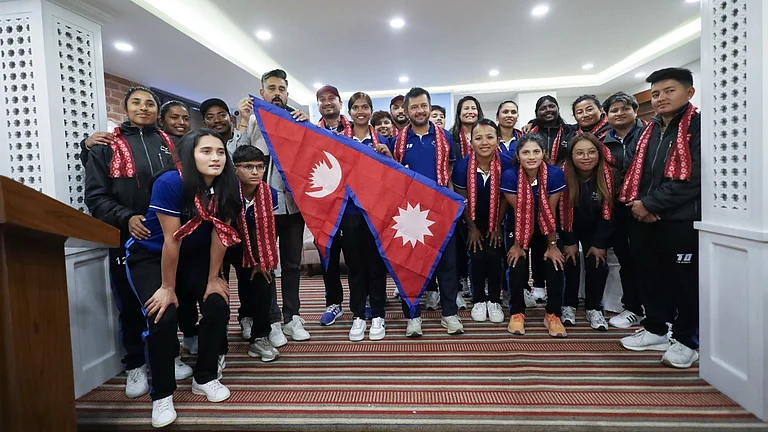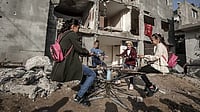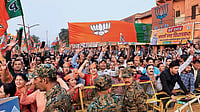Lt Col Quazi Sajjad Ali Zahir, Bir Protik, Swadhinata Padak, is a war veteran from Bangladesh. In 1971, he was posted in Sialkot, when he defected from the Pakistani Army, crossing over to India in J&K to join the Liberation War. In this interview, he talks about the impact of the war on India and Bangladesh.
The independence of Bangladesh was an epochal event in South Asian history. What was the impact of the liberation on the geopolitical dynamics of South Asia?
There have been many changes. Pakistan was not considered a respectable nation after the war, while India gained the respect of the international community. India sheltered around one crore refugees and because of this, its citizens earned respect worldwide. India has almost become a global superpower; it’s already a regional superpower. The credit for this goes to the 1971 victory. In 1948, India couldn’t win the war, losing control of a part of Kashmir. In 1962, India lost to China. In 1964, the Rann of Kutch war was a stalemate. The 1965 Indo-Pak war was bloody, but no decisive objective was achieved. But in 1971, with a massive victory, India regained confidence; its citizens stood as one with its soldiers. Pakistan hasn’t recovered from the defeat of 1971. In the Pakistani parliament, one MP stood up to say “Mr PM, make plans to make Pakistan like Switzerland”, to which another MP retorted, “Pehle Pakistan ko Bangladesh bana lo”. Pakistan now wants to become developed like Bangladesh. Indian and Bangladeshi peacekeeping forces are respected the world over, because both nations adhere to justice, dignity and honour.
ALSO READ: And Thus A Desh Was Born
Bangladeshis had looked forward to a ‘shonar Bangla’. As we enter the golden jubilee year of the liberation, do you think the aspirations of the people have been fulfilled?
There is a tremendous effort to improve the economy. Parameters of GDP, women’s empowerment, female education and health have improved. Three million were killed in 1971—among them, the country’s best soldiers, administrators and intellectuals. Bangabandhu Sheikh Mujib and his family were massacred in 1975 and thereafter for 26 years we had martial law and anti-liberal forces in power. Sheikh Hasina is making progress. But fundamentalist, pro-Pakistani forces trained and motivated by ISI and Pakistani Army continue to operate. They use Bangladesh as a launch pad to attack India. But a good effort is going on to correct the misdirection handed out to generations. I am confident that our new, enlightened generation is doing a good job and we have India as a good neighbour to support us.
Bangabandhu, the architect of Bangladesh, was one of the most influential leaders of the 20th century. He championed the cause of democracy, secularism, and social justice throughout his life. As 2020 is the great leader’s 100th birth anniversary, how can his legacy be taken forward?
ALSO READ: How The West Was Won
What Bangabandu did was unique and courageous. When he was given a death sentence by Pakistan, he was unafraid. He didn’t compromise even when his grave was dug before him. He dreamed of peace, welfare and prosperity. However, you can cut a flower but cannot keep spring from arriving. Bangabandhu was that flower, but spring has come in the shape of Sheikh Hasina. She is taking over his unfinished work—for example, a bridge over the mighty Padma and giving home to the homeless.
Democracy, sovereignty, and secularism are among the common values of our great nations. As part of our shared, rich civilisational heritage we believe in ‘sarvadharma sambhava’. Prime Minister Sheikh Hasina has done an excellent job in countering extreme ideologies. What can India and Bangladesh jointly do to ensure a golden era in the region’s security environment?
When Sheikh Hasina took over as PM, she took efforts to reduce border issues with neighbouring countries. With India, we have close ties in trade and commerce, education, cultural exchanges and military cooperation. When two countries are great friends, there cannot be agreement on everything, but we have no major differences. We must uphold the spirit of 1971 to work together towards victory. The war is being fought every day—against COVID-19, against poverty, corruption, malnutrition and against social evils. Close cooperation is needed to curb these crimes. The enclave issues were also settled. Some misgivings about maritime boundaries are being settled legally. Let’s hope the spirit of 1971 guides us!
(As told to Nirmal Matthew, research associate, Rashtriya Raksha University)
ALSO READ


























